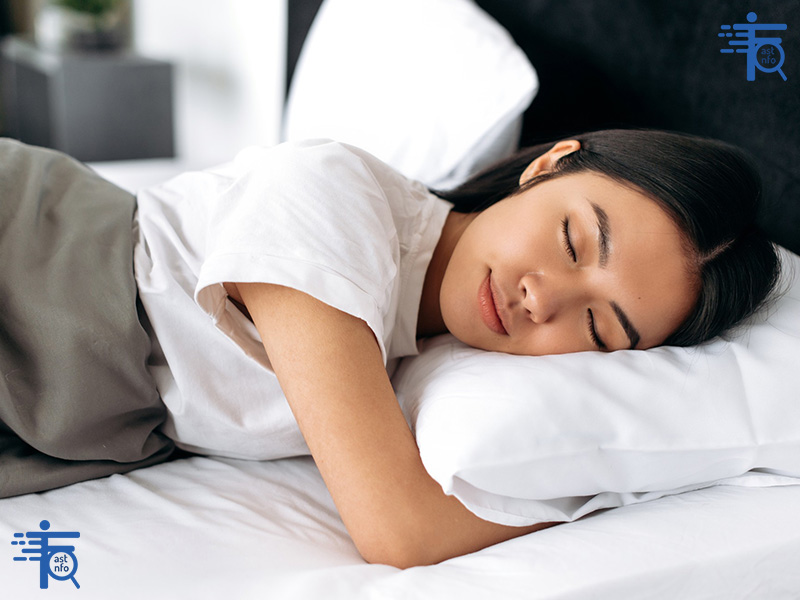12 Healthy Sleep Hygiene Tips
Good sleep hygiene involves adopting habits and practices that promote consistent, restful sleep. Here are 12 healthy sleep hygiene tips to help you improve the quality of your sleep:
1. Maintain a Consistent Sleep Schedule
- Tip: Go to bed and wake up at the same time every day, even on weekends.
- Why: Consistency helps regulate your body’s internal clock, making it easier to fall asleep and wake up naturally.
2. Create a Relaxing Bedtime Routine
- Tip: Develop a pre-sleep routine that helps you wind down, such as reading, taking a warm bath, or practicing relaxation techniques like deep breathing or meditation.
- Why: A calming routine signals to your body that it’s time to sleep.
3. Make Your Sleep Environment Comfortable
- Tip: Ensure your bedroom is cool, quiet, and dark. Invest in a comfortable mattress and pillows.
- Why: A comfortable sleep environment can significantly improve the quality of your sleep.

4. Limit Exposure to Screens Before Bed
- Tip: Avoid using phones, tablets, computers, and TVs at least an hour before bedtime.
- Why: The blue light emitted by screens can interfere with the production of melatonin, the hormone that regulates sleep.
5. Be Mindful of Food and Drink
- Tip: Avoid large meals, caffeine, and alcohol close to bedtime.
- Why: These can disrupt your sleep by causing discomfort, stimulating your nervous system, or altering your sleep cycle.
6. Get Regular Exercise
- Tip: Engage in regular physical activity, but try to finish exercising at least a few hours before bedtime.
- Why: Exercise can help you fall asleep faster and enjoy deeper sleep, but exercising too close to bedtime can be stimulating.
7. Manage Stress and Anxiety
- Tip: Practice stress-reducing techniques such as mindfulness, meditation, or journaling.
- Why: High levels of stress and anxiety can make it difficult to fall asleep and stay asleep.
8. Limit Naps
- Tip: If you need to nap, try to keep it short (20-30 minutes) and avoid napping late in the afternoon.
- Why: Long or late naps can interfere with your ability to fall asleep at night.

9. Expose Yourself to Natural Light During the Day
- Tip: Spend time outside during daylight hours, especially in the morning.
- Why: Natural light helps regulate your circadian rhythm, making it easier to fall asleep at night.
10. Avoid Clock-Watching
- Tip: Turn your clock away from you or place it out of sight.
- Why: Watching the clock can increase stress and make it harder to fall asleep.
11. Use Your Bed Only for Sleep and Intimacy
- Tip: Avoid using your bed for activities like working, eating, or watching TV.
- Why: This helps strengthen the mental association between your bed and sleep.
12. Seek Professional Help if Needed
- Tip: If you continue to have trouble sleeping despite practicing good sleep hygiene, consider consulting a healthcare professional.
- Why: Persistent sleep issues may be a sign of an underlying sleep disorder or other health condition that requires treatment.
By incorporating these healthy sleep hygiene tips into your daily routine, you can create an environment and lifestyle that supports restful, rejuvenating sleep. Remember that improving sleep habits takes time, so be patient and consistent with your efforts.

What is sleep hygiene?
Sleep hygiene refers to a set of practices, habits, and environmental factors that are conducive to getting consistent, high-quality sleep. It involves creating a routine and setting up your surroundings to promote restful and uninterrupted sleep. Good sleep hygiene is essential for maintaining physical health, mental well-being, and overall quality of life.
Poor sleep hygiene, on the other hand, can lead to sleep difficulties like insomnia, frequent awakenings, or feeling unrested despite spending enough time in bed. Over time, inadequate sleep can contribute to chronic health issues such as obesity, diabetes, cardiovascular disease, and mental health disorders like anxiety and depression.
Key Components of Sleep Hygiene:
- Consistent Sleep Schedule:
- Going to bed and waking up at the same time every day, even on weekends, helps regulate your body’s internal clock (circadian rhythm).
- Bedtime Routine:
- Engaging in relaxing activities before bed, such as reading, taking a warm bath, or practicing mindfulness, signals to your body that it’s time to wind down.
- Sleep-Friendly Environment:
- Creating a comfortable, quiet, dark, and cool sleeping environment can improve sleep quality. This includes investing in a good mattress, pillows, and blackout curtains if needed.
- Limiting Stimulants:
- Avoiding caffeine, nicotine, and heavy meals close to bedtime can prevent sleep disruptions.
- Reducing Screen Time:
- Limiting exposure to screens (phones, computers, TVs) at least an hour before bed helps reduce the impact of blue light, which can interfere with melatonin production.
- Regular Physical Activity:
- Exercising during the day can promote better sleep, but vigorous exercise close to bedtime may have the opposite effect.
- Managing Stress:
- Practicing relaxation techniques like deep breathing, meditation, or journaling can help calm the mind and prepare the body for sleep.
- Limiting Naps:
- While short naps can be refreshing, long or late-afternoon naps can interfere with nighttime sleep.
- Avoiding Clock-Watching:
- Staring at the clock can increase anxiety about not sleeping, making it harder to fall asleep.
- Using the Bed Only for Sleep and Intimacy:
- Avoiding work, eating, or other activities in bed helps strengthen the mental association between the bed and sleep.

Why Is Sleep Hygiene Important?
- Improves Sleep Quality: Good sleep hygiene helps you fall asleep faster, stay asleep longer, and wake up feeling refreshed.
- Supports Physical Health: Quality sleep is essential for immune function, metabolism, and overall physical health.
- Enhances Mental Well-Being: Proper sleep reduces stress, improves mood, and supports cognitive functions like memory and concentration.
- Prevents Sleep Disorders: Practicing good sleep hygiene can reduce the risk of developing sleep disorders like insomnia or sleep apnea.
Who Can Benefit from Sleep Hygiene?
Everyone can benefit from improving their sleep hygiene, but it’s especially important for:
- People who struggle with falling or staying asleep.
- Those experiencing stress or anxiety that affects their sleep.
- Individuals with irregular sleep schedules, such as shift workers.
- Anyone looking to improve their overall health and well-being.
By prioritizing sleep hygiene, you can create a foundation for better sleep, which in turn supports a healthier, more productive life. If sleep problems persist despite good sleep hygiene practices, it may be helpful to consult a healthcare professional to rule out underlying sleep disorders or other medical conditions.
fastinfosearch site provides the best information
Suggested content:





No comment